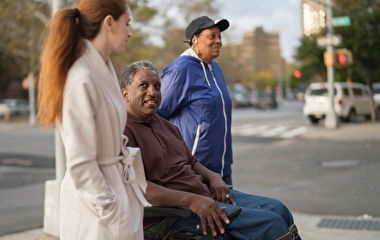CTS has awarded seed funding to five new transportation-related projects that will explore a variety of topics, including autonomous vehicles (AVs), equity, and shared mobility.
The seed funding, awarded biennially, aims to help CTS Scholars develop expertise in emerging areas and foster strategic relationships that position them for future funding opportunities.
One project, led by Professor Jason Cao and Senior Fellow Frank Douma at the Humphrey School of Public Affairs, will examine the challenges and opportunities of autonomous vehicles (AVs) related to urban planning. The researchers will explore such issues as the effects of AVs on transit supply and demand in urban neighborhoods, potential equity concerns, and the influence of AVs on the demand for on- and off-street parking.
Professor Thomas Fisher with the Minnesota Design Center and Humphrey School assistant professor Fernando Burga will investigate the implications of potential changes in transportation, mobility, and the nature of work caused by AVs, changing consumer patterns, and the rise of virtual retail. The project will focus on the impact of AVs on job access and explore the tensions that may arise as new technologies are introduced in neighborhoods with historically disadvantaged residents.
A project led by civil, environmental, and geo- engineering (CEGE) assistant professor Alireza Khani and industrial and systems engineering professor Saif Benjafaar will provide insights on how collaborative consumption and mobility-as-a-service can help improve transportation systems. The project will study the impacts of new mobility solutions such as transportation network companies on travel behavior and the cost-effectiveness of transit systems.
CEGE assistant professor Michael Levin and mechanical engineering professor Rajesh Rajamani will conduct a project that links AV technology development with traffic planning research to potentially improve both safety and traffic flow. Their work will develop a spacing policy for adaptive cruise control that can be used for shared-road platooning and create planning models to study the effects of platooning on citywide congestion.
In previous research, CEGE professor Mihai Marasteanu found that small additions of a new material, graphene nanoplatelets (GNP), can reduce the compaction effort required for hot-mix asphalt. As part of his new project, Marasteanu will work with international collaborators in Italy and Sweden to test asphalt mixture compaction using a new approach based on tribology—the science of friction, lubrication, and wear of contact surfaces in relative motion. The approach will specifically be used to better understand the effects of the GNP modification on compaction.



